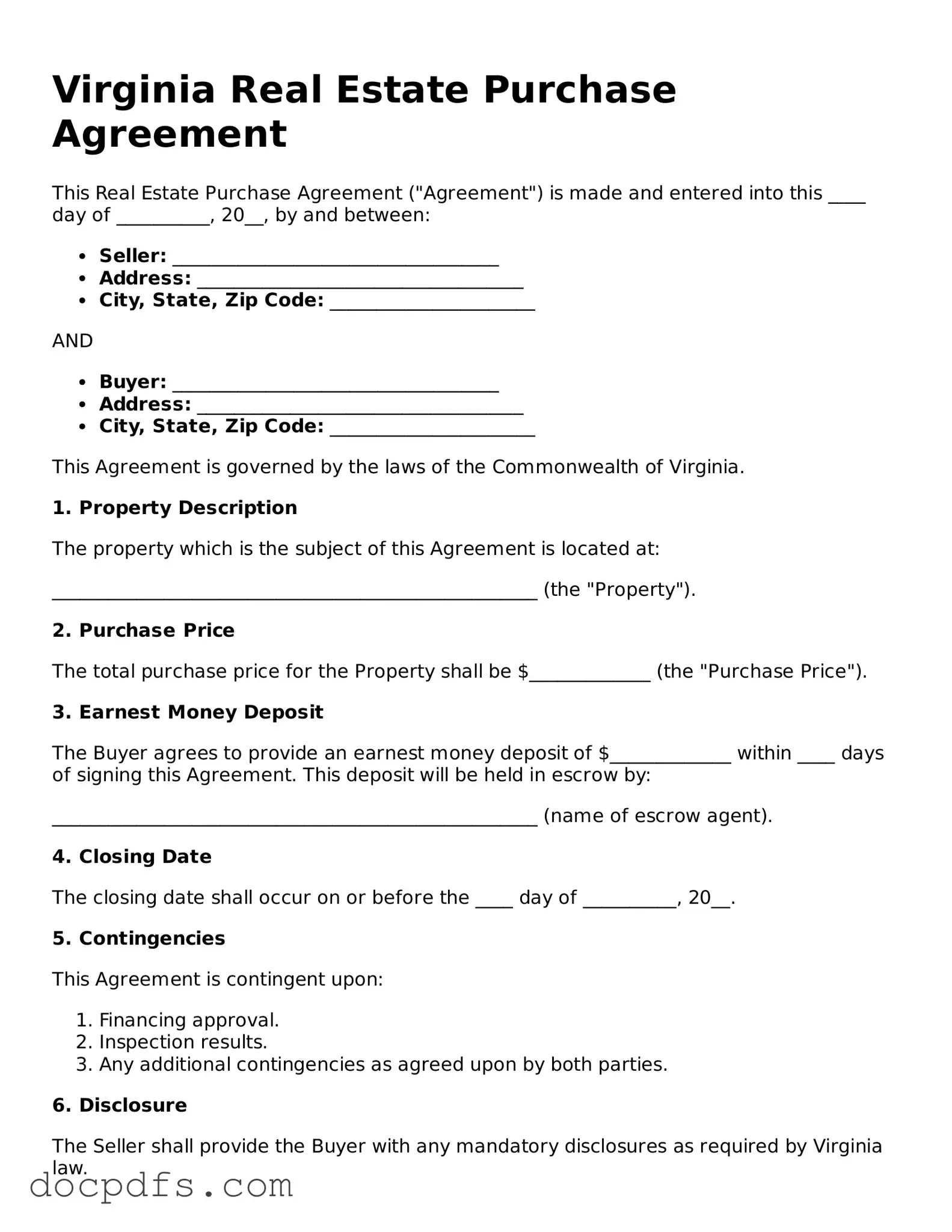What is the Virginia Real Estate Purchase Agreement?
The Virginia Real Estate Purchase Agreement is a legal document used to outline the terms and conditions under which a buyer agrees to purchase real estate from a seller. This agreement serves as a binding contract once both parties have signed it, detailing the sale price, property description, and any contingencies that may apply.
What key elements are included in the agreement?
A typical Virginia Real Estate Purchase Agreement includes the following key elements:
-
Property Description:
A detailed description of the property being sold.
-
Purchase Price:
The agreed-upon amount the buyer will pay for the property.
-
Contingencies:
Conditions that must be met for the sale to proceed, such as financing or inspection contingencies.
-
Closing Date:
The date when the transaction will be finalized and ownership transferred.
-
Earnest Money:
A deposit made by the buyer to show commitment to the purchase.
How does the earnest money work?
Earnest money is a deposit that demonstrates a buyer's good faith in proceeding with the purchase. Typically, this money is held in escrow until the closing date. If the sale goes through, the earnest money is applied to the purchase price. However, if the buyer backs out without a valid reason outlined in the contingencies, they may forfeit this deposit.
Can the agreement include contingencies?
Yes, contingencies are a crucial part of the Virginia Real Estate Purchase Agreement. Common contingencies include:
-
Financing contingency: Allows the buyer to withdraw if they cannot secure a mortgage.
-
Inspection contingency: Permits the buyer to back out if the property fails to meet inspection standards.
-
Appraisal contingency: Ensures the property's appraised value meets or exceeds the purchase price.
What happens if either party breaches the agreement?
If either the buyer or seller fails to fulfill their obligations under the agreement, it may be considered a breach of contract. The non-breaching party may have several options, including:
-
Seeking damages for any losses incurred.
-
Requesting specific performance, which compels the breaching party to fulfill their contractual obligations.
-
Terminating the agreement, if allowed by the terms of the contract.
Is it necessary to have a lawyer review the agreement?
While it is not legally required to have a lawyer review the Virginia Real Estate Purchase Agreement, it is highly advisable. A legal professional can help ensure that the terms are fair, clearly understood, and compliant with state laws. This can provide peace of mind and protect the interests of both parties.
How is the agreement executed?
The agreement is executed when both the buyer and seller sign the document. This signature indicates that both parties agree to the terms outlined in the contract. It is essential to ensure that all necessary parties sign and date the agreement for it to be legally binding.
Can the agreement be modified after it is signed?
Yes, modifications can be made to the Virginia Real Estate Purchase Agreement after it has been signed, but both parties must agree to any changes. These modifications should be documented in writing and signed by both parties to ensure clarity and enforceability.

